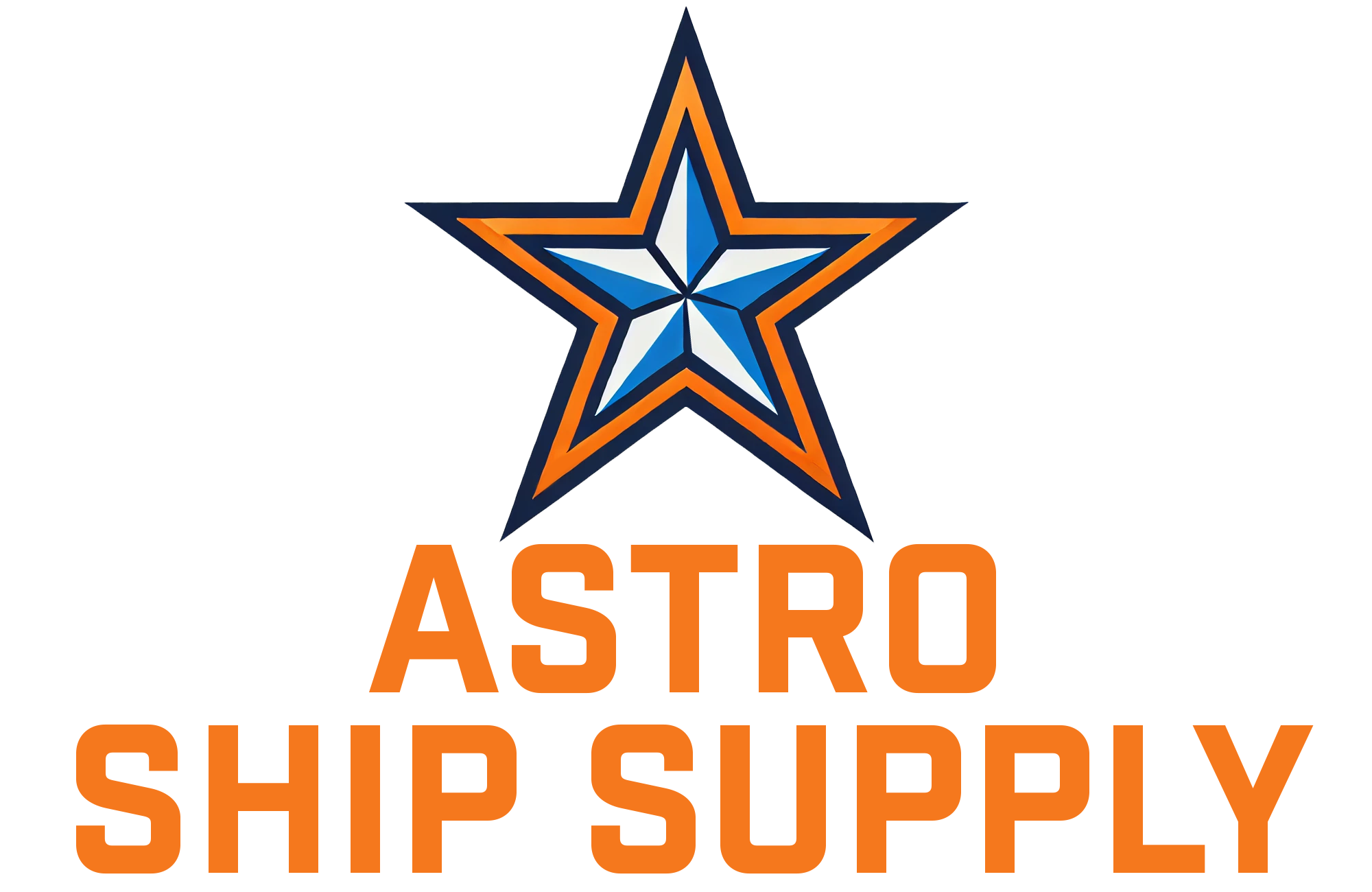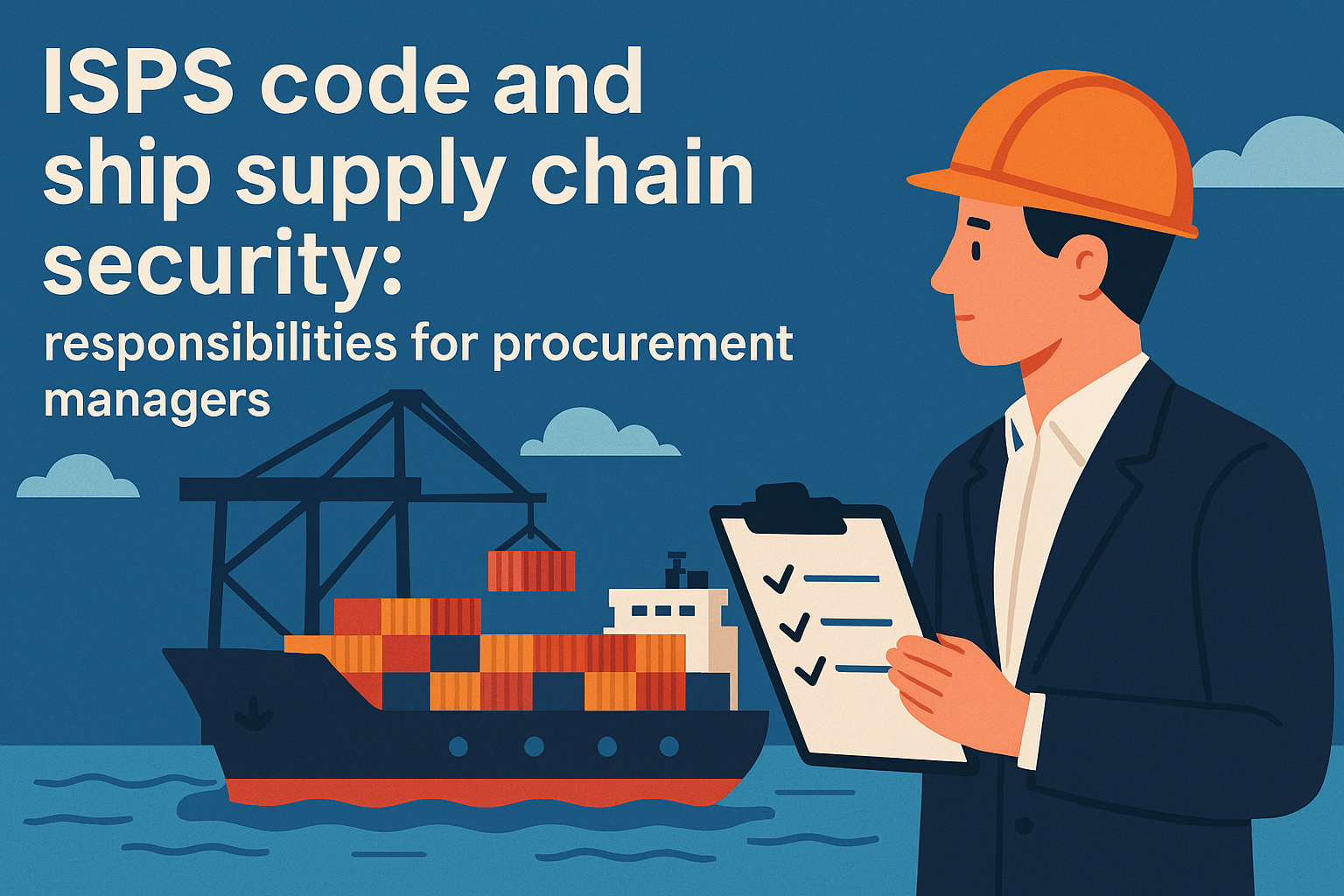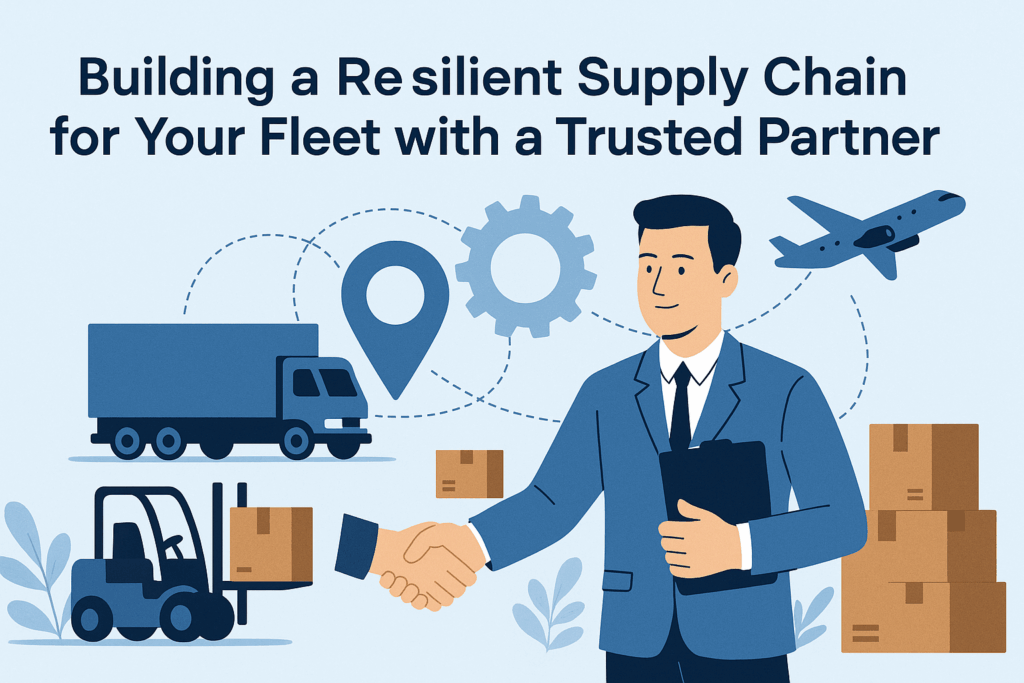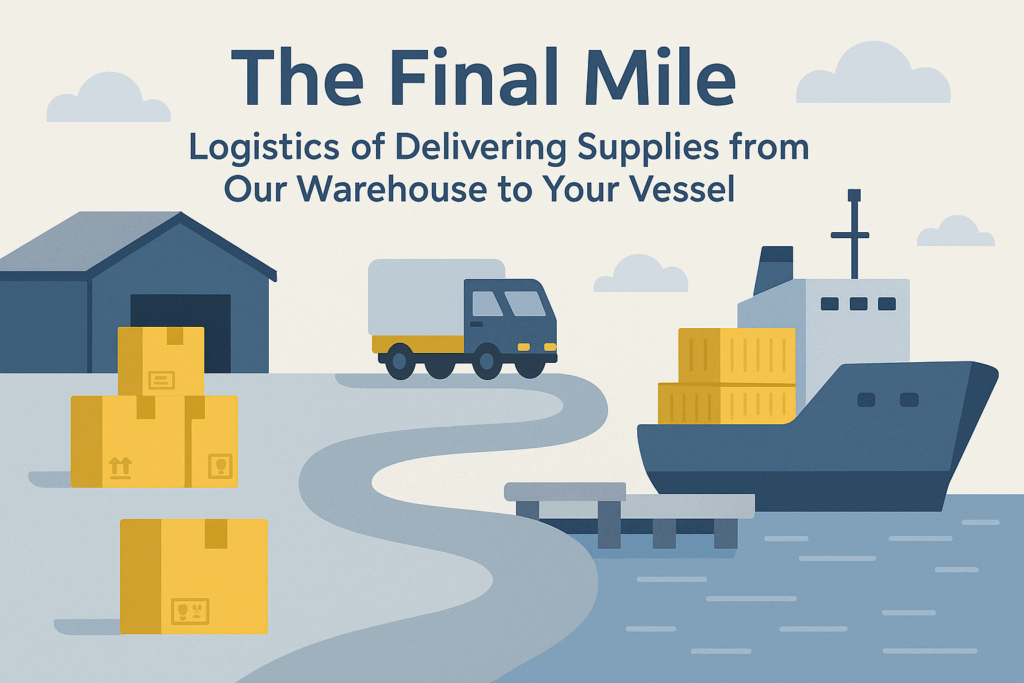Beyond the Bottom Line: Procurement’s Pivotal Role in Fortifying Maritime Security via ISPS Compliance
Procurement Managers in the maritime industry are masters of balancing cost, quality, and timely delivery. However, in an era of heightened global security awareness, a fourth, non-negotiable dimension demands equal attention: security and compliance, particularly concerning the International Ship and Port Facility Security (ISPS) Code. The ship suppliers you select are not just vendors; they are critical links in your vessel’s supply chain and, by extension, its security posture. Choosing an ISPS-compliant partner like Astro Ship Supply isn’t merely an operational detail—it’s a strategic procurement decision that directly impacts risk mitigation, operational continuity, and regulatory adherence for your fleet calling on ports like Houston and across the Gulf Coast.
This isn’t just about ticking a box. The ramifications of a poorly vetted supplier in the context of ISPS can range from costly delays and denied port access to severe security breaches with far-reaching consequences. As a Procurement Manager, your sourcing decisions for everything from essential provisions to critical deck spares have a direct line to the safety and security of vessels, crews, and port facilities.
The Procurement Manager’s Strategic Seat at the Security Table
Historically, security might have been seen as the domain of the Ship Security Officer (SSO) or Company Security Officer (CSO). However, the ISPS Code’s emphasis on comprehensive security throughout the port environment makes procurement an undeniable stakeholder.
H3: Expanding the Procurement Triangle: Cost, Quality, Delivery – and Security
The traditional procurement focus on achieving the best balance of cost, quality, and on-time delivery is fundamental. But for maritime operations, this model is incomplete. Security, underscored by ISPS compliance, must be integrated as a core pillar. A supplier offering the lowest price but lacking robust ISPS procedures can introduce vulnerabilities that far outweigh any initial savings. As a Procurement Manager, recognizing and factoring in this security dimension is key to responsible sourcing.
H3: Why ISPS Compliance is a Critical Procurement Imperative
Your vendor selection process acts as a crucial gatekeeping function. By choosing your ship chandlers, you are effectively granting them access to sensitive areas and a direct interface with your vessels. Consider:
- Risk Mitigation: An ISPS-compliant supplier actively works to prevent security incidents. A non-compliant one can be an unwitting (or witting) entry point for threats.
- Operational Continuity: Suppliers failing ISPS checks at port gates (e.g., personnel lacking TWIC cards in U.S. ports) cause immediate delays, disrupting tight vessel schedules and potentially incurring demurrage.
- Regulatory Adherence: Ensuring your suppliers meet ISPS standards helps your company demonstrate due diligence and uphold its own security responsibilities under the IMO’s ISPS Code.
- Reputational Integrity: A security incident linked to a poorly chosen supplier can severely damage your company’s reputation.
H3: ISPS Code Essentials for Strategic Vendor Selection
While a deep dive into the ISPS Code is available on our blog (see our previous ISPS post), procurement teams should focus on what it implies for supplier capability:
- Access Control Understanding: Suppliers must know that entry to port facilities and vessels is strictly controlled and requires adherence to the Port Facility Security Plan (PFSP).
- Personnel Vetting: Delivery staff must have appropriate credentials (like TWIC) and understand security protocols.
- Secure Goods Handling: Procedures must be in place to prevent tampering with stores or bonded items en route.
- Adaptability to Security Levels: Suppliers must be able to adjust their procedures if Port Security Levels (1, 2, or 3) change.
These are not just operational details; they are indicators of a supplier’s professionalism and commitment to security, making them crucial for your vetting process.
Vetting for Security: Integrating ISPS into Your Supplier Qualification Process
Procurement Managers can significantly enhance supply chain security by embedding ISPS considerations into their standard supplier evaluation and onboarding procedures.
H3: Key Questions to Embed in Your RFP/RFQ for Ship Chandlers
Moving beyond price and product specifications, consider adding these ISPS-focused questions to your inquiries:
- “Can you provide documented procedures detailing your company’s compliance with the ISPS Code?”
- “Are all personnel involved in port deliveries in possession of valid TWIC cards (for U.S. operations) or equivalent port-required IDs?”
- “Describe your process for ensuring the security and integrity of goods from your warehouse to the point of vessel delivery.”
- “How does your company adapt its delivery procedures when a port facility operates at a heightened security level (e.g., ISPS Level 2)?”
- “What training do your employees receive regarding ISPS Code requirements and general security awareness?”
- “Can you provide references from other clients specifically addressing your reliability and security practices within restricted port areas?”
The quality and detail of responses to these questions are highly indicative of a supplier’s security maturity.
H3: Red Flags: Identifying Potentially Non-Compliant or Risky Suppliers
During your evaluation, be alert for these warning signs:
- Vague or dismissive answers to ISPS-related questions.
- No documented security procedures or lack of awareness of specific port requirements.
- Inability to confirm TWIC status or equivalent for their delivery personnel.
- Unusually low pricing that might suggest corners are being cut in vital areas like security training, personnel vetting, or secure logistics.
- A history of delivery issues or security-related delays (if discoverable through references).
H3: The Assurance of Certifications and Proactive Measures
While no single “ISPS Supplier Certification” exists universally, look for indicators of a commitment to quality and process, like ISO 9001:2015. More importantly, a proactive supplier like Astro Ship Supply will readily discuss their internal security protocols, staff training, and specific measures they take to comply with ISPS guidelines and various port facility plans, demonstrating a culture of security.
The Ripple Effect: Supplier Choice Scenarios for Procurement Professionals
Your decision as a Procurement Manager directly influences operational outcomes. Consider these contrasting scenarios:
H3: Scenario 1: The ISPS-Compliant Partner (Enabled by Strategic Procurement)
Procurement Action: Your department thoroughly vets suppliers, prioritizing ISPS compliance alongside cost and quality. Astro Ship Supply is selected for a critical delivery in Houston.
Outcome: Astro provides all necessary pre-arrival notifications. Their TWIC-certified driver arrives on time. Vehicle and goods pass port security checks smoothly. Supplies are delivered efficiently to the vessel according to the PFSP and vessel’s requirements. The vessel departs on schedule. The procurement decision directly contributed to operational success and security assurance.
H3: Scenario 2: The “Lowest Price” Pitfall (A Procurement Oversight)
Procurement Action: Focused primarily on cost reduction, your team selects a new, unknown supplier offering a significantly lower bid, with minimal ISPS vetting.
Outcome: The supplier’s driver arrives at the port gate without a valid TWIC. Access is denied. The vessel waits, incurring idle time costs. Frantic calls are made. Eventually, your team has to arrange an emergency, premium-priced order from a compliant supplier like Astro to prevent further delays or even demurrage charges. The initial “savings” are wiped out, and operational trust is damaged due to a procurement oversight regarding security essentials.
H3: Scenario 3: The Unseen Risk Materializes (Consequences of Lax Vetting)
Procurement Action: A supplier with lax security procedures (unnoticed during a superficial vetting process) is routinely used.
Outcome: During a delivery, an unauthorized item is found concealed within the stores, or a supplier employee engages in suspicious activity noted by port security. This triggers a security alert, potential lockdown of the berth, thorough investigation of the vessel and supplier, significant operational disruption, and severe reputational damage for your company. A robust, security-focused procurement process could have identified and mitigated this supplier risk.
Beyond Price Tags: A Strategic Cost-Benefit Analysis for Procurement
Procurement decisions must look beyond the initial invoice. A truly strategic approach considers the total cost of ownership, which inherently includes security and compliance.
| Procurement Choice & Focus | Apparent Short-Term Benefit | Potential Long-Term Costs & Risks |
|---|---|---|
| Price-Focused (Lax ISPS Vetting) | Lower initial supply cost. | High risk of delays, demurrage, emergency re-orders at premium prices, fines, reputational damage, compromised security, potential legal liabilities. |
| Security & Compliance-Focused (Rigorous ISPS Vetting, e.g., Astro Ship Supply) | Potentially slightly higher initial cost reflecting robust procedures & compliance. | Reduced risk of delays, enhanced operational efficiency, assured regulatory compliance, protected reputation, strengthened security, long-term cost savings through problem avoidance. |
H3: Embracing Total Cost of Ownership (TCO) with a Security Lens
An ISPS-compliant supplier might have marginally higher operational costs due to investments in training, personnel vetting (TWIC fees), and secure logistics. However, these are investments in risk reduction. When factoring in the potential costs of non-compliance—delays, fines, security incidents—the TCO of partnering with a compliant supplier is often significantly lower. Responsible procurement recognizes secure operations as a value driver.
Best Practices for ISPS-Aware Ship Supply Procurement
Procurement Managers can champion maritime security by implementing these practices:
- Develop a Supplier Code of Conduct: Clearly outline your company’s expectations regarding ISPS compliance and general security measures.
- Incorporate ISPS Clauses in Contracts: Make adherence to ISPS standards a contractual obligation for your ship supply partners.
- Implement Rigorous Vendor Pre-Qualification: Include specific ISPS compliance checks (personnel, procedures, awareness) in your vetting process.
- Conduct Regular Supplier Performance Reviews: Include security and compliance adherence as key performance indicators.
- Foster Open Communication: Maintain dialogue with your CSO/SSO and your chosen suppliers regarding security expectations and any changes in port security levels or procedures. Contact Astro Ship Supply to discuss your specific needs.
- Prioritize Long-Term Partnerships: Build relationships with trusted, compliant suppliers who demonstrate a consistent commitment to security and quality.
Conclusion: Procurement Managers – Your Critical Role in a Secure Maritime Future
Procurement Managers stand at a crucial juncture in the maritime supply chain. Your decisions on supplier selection have a direct and profound impact on the security and operational integrity of your fleet and the ports it serves. By championing ISPS Code compliance within your procurement strategies, you move beyond a purely transactional role to become a key enabler of maritime security. Choosing an experienced, demonstrably compliant partner like Astro Ship Supply is a strategic investment in efficiency, reliability, and peace of mind.
Empower your procurement process with a security-first mindset. Ensure your supply chain is a source of strength, not vulnerability. Contact us to discuss your fleet’s specific supply needs and learn how our commitment to ISPS compliance can support your security and operational objectives.
Frequently Asked Questions for Procurement Managers Regarding ISPS & Ship Supply
How can Procurement Managers effectively balance cost pressures with the need for ISPS-compliant suppliers?
Focus on the Total Cost of Ownership (TCO) rather than just the upfront price. While a compliant supplier might have slightly higher costs due to their security investments, this often prevents much larger expenses related to delays, fines, or security incidents caused by non-compliant, cheaper alternatives. Clearly articulating these risk-mitigation benefits to management can justify the selection of compliant partners.
What are potential liabilities for our company if a supplier chosen by procurement causes an ISPS-related security breach?
While specific liabilities depend on contractual terms and jurisdiction, a company could face regulatory fines, operational shutdowns, legal action from affected parties, and severe reputational damage. Demonstrating due diligence in supplier selection, including thorough ISPS compliance vetting, is a critical mitigating factor. Procurement records of this vetting process become very important.
How frequently should we review our ship suppliers’ ISPS compliance status?
It’s advisable to conduct periodic reviews, perhaps annually or biennially, or if there are significant changes in regulations or port procedures. Key indicators like TWIC validity for personnel should be monitored. Maintaining an ongoing dialogue and incorporating compliance checks into regular supplier performance reviews is also a good practice.
Are there any ISPS-specific certifications for ship suppliers that Procurement Managers should prioritize?
There isn’t a single, universally mandated “ISPS Supplier Certification.” However, Procurement Managers should look for suppliers who can demonstrate robust internal ISPS procedures, provide evidence of staff training (especially regarding TWIC and port access), and ideally hold broader quality management certifications like ISO 9001, which indicate a commitment to process and diligence often extending to security protocols.
How does partnering with Astro Ship Supply help our procurement department meet its security and compliance objectives?
Astro Ship Supply proactively embeds ISPS compliance into all operations. We ensure our personnel are properly credentialed (e.g., TWIC-holders), trained in security procedures, and adhere to all PFSP requirements. We provide transparent documentation and communication, simplifying your due diligence and giving you confidence that your supply chain link is secure, compliant, and reliable. This allows your procurement team to focus on strategic goals, knowing the security aspect is robustly managed.






